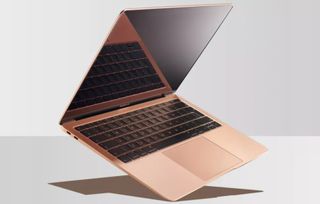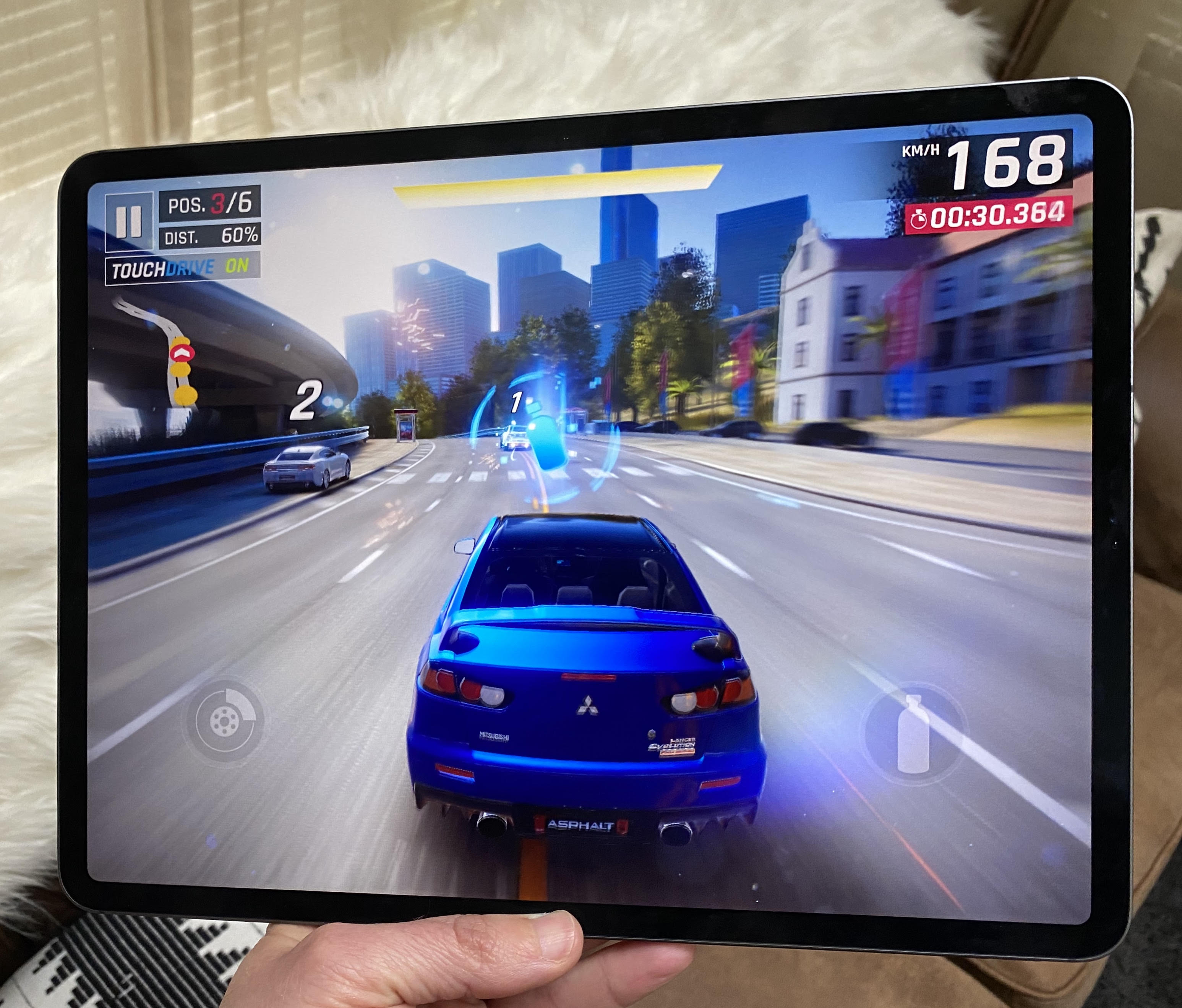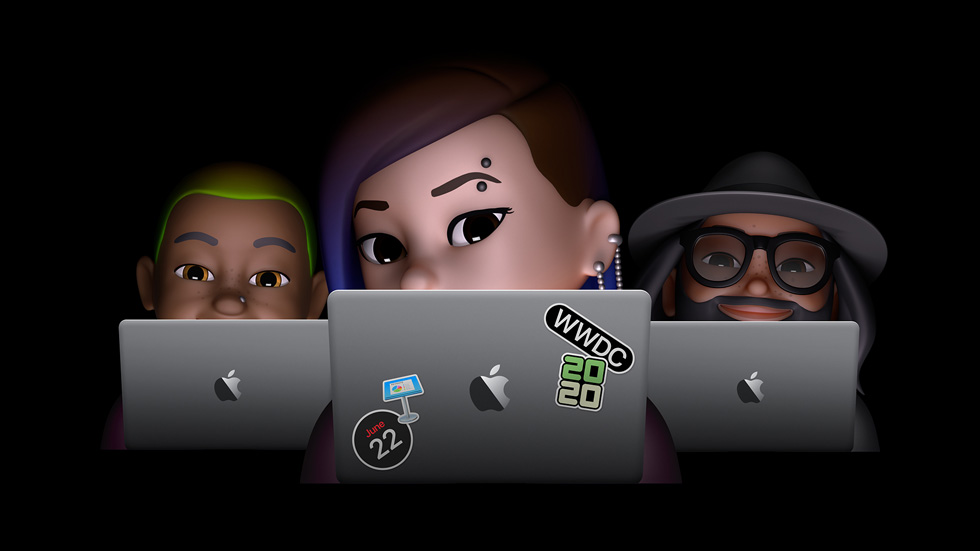5 reasons you’ll want to upgrade to an ARM MacBook
5 reasons you'll want to upgrade to an ARM MacBook

After years of rumors, it appears that Apple is finally going to commit to release Macs that run on Apple tree-designed ARM processors rather than fries made by Intel. Based on reports, the proclamation could come as presently as this month's WWDC 2020 event, though Apple wouldn't make the switch until 2021 to give developers enough time to adjust.
If in that location's a company that is perfectly positioned to make this switch happen, it'southward Apple. Not just has Apple tree already pulled this pull a fast one on off twice earlier, only it stands to do good enormously by ditching Intel for the company that's making the best mobile processors in the business — Apple itself.
- Best laptops you can buy correct now
- Android Boob tube leak reveals killer feature to beat Roku
- Plus: Stunning iPhone 12 design reveals the new look we really want
Here, and then, are the superlative five reasons why you'll desire to seriously consider buying a new Mac laptop powered by Apple-designed processors.
They're going to be blazing fast
Apple tree's processors are already the hands-downwardly champions in the mobile world. In the past few years, Apple'due south been shipping new iPhones with upgraded processors before Android phones take even caught up with the previous iPhone. When Apple released the iPad Pro in late 2018, the company claimed the tablet was faster than more than ninety percent of all laptops sold that twelvemonth.

One reason the current-model iPad Pro is faster than near laptops is its affluence of processor cores. Last twelvemonth Apple unveiled a high-stop configuration of the 16-inch MacBook Pro with eight processor cores, but the iPad Pro has had 8 cores since 2018. The current model has four cores that are focused on energy efficiency, and four that are designed to maximize performance. The organization dynamically switches between them — and tin can even use all eight simultaneously to maximize processing power. Permit's not mention the vii (eight on 2020 models) cores in the Apple-designed GPU, and the machine-learning Neural Engine cores.
And that'southward a processor from 2018 designed for an iPad. What do you remember Apple will do in 2021, with a processor designed with higher-stress Mac performance in mind? Information technology's hard to imagine that ARM-based Mac laptops won't be packing serious power.
Mobile chips are famously good at power efficiency
Laptops aren't just about maximizing ability, of course — they need to balance performance with battery life and weight. Apple's ARM processors have e'er been designed for devices with batteries, iPhones and iPads and even Apple Watches.

It will exist interesting to see how Apple balances these ii points. The current iPad Pro and MacBook Pro models both merits 10 hours of bombardment life, suggesting that Apple tree'south might exist more likely to shoot for a reasonable target battery life. Regardless, information technology'due south hard to imagine that Apple tree's own processors won't be specifically tuned to maximize battery life when necessary — and practise a far better task than Intel processors do.
Apple fries volition run cooler and quieter
Modernistic Apple has released a single laptop with a passive cooling system — the fanless 12-inch MacBook, which had an underpowered Intel processor and some serious thermal throttling problems. Meanwhile, the iPad has never had a fan, non even that eight-cadre iPad Pro.
An ARM Mac laptop should run cooler than its Intel counterparts.
Fundamentally, an ARM Mac laptop should run libation than its Intel counterparts. This could hateful that ARM Mac laptops demand to be throttled less, allowing them to run faster and do more than work. Information technology could also mean that Apple can dial back the fans on its active cooling systems, leading to a quieter laptop. And who knows, maybe Apple will even venture back into the realm of a fanless Mac laptop — this time, with a processor that's capable of delivering operation without needing to blow air over it.
Most apps will run natively
Reports suggest that Apple will announce the motion to ARM this month, but won't send ARM Macs to consumers until 2021. That means Mac developers will have six months to update their apps to support ARM.

Most app makers won't need near that long. When Apple moved the Mac to Intel, many developers had to move business firm from third-party development environments to Apple's in-business firm tools. Today's Apple development mural is largely a monoculture, with Mac, iPhone, iPad, Apple Sentry and Apple tree TV evolution all happening within a single app: Apple's own Xcode.
In fact, Xcode is already able to compile software for both Apple and Intel processors. When a developer tests their iOS app on their Mac, they're running a version congenital for Intel. The version that goes to the App Store is, of course, compiled for Apple tree'south processors. Apple has carefully built its compiler toolchain and even added support for intermediate bytecode and so that apps can be recompiled at the App Store level for iOS.
All the pieces are in place. Any app that'southward actively existence adult should be prepare for ARM Macs on mean solar day one. It will put the Mac's previous chip transitions to shame. And if y'all're wondering why Apple tree won't take the aforementioned trouble Microsoft and its partners have had with ARM devices, the answer is simple: Apple's complete control over its platform allows it to move everything — hardware, software, evolution tools, and apps — wherever information technology needs them to get. Apple tree has transitioned the entire Mac production line to a new processor compages before, and it'll do it again.
Older apps volition probably still work
Both previous Mac chip transitions came with a bit of bridging applied science that allowed software compiled for the previous processor compages to run on the new one. Rosetta, which translated PowerPC lawmaking into Intel code, ran software on Intel Macs at about 80 percentage speed. Non nifty, but usable. Bold Apple offers a similar applied science (and I have a hard time believing it won't), apps that haven't been updated should nonetheless be compatible.
In fact, Apple has probably subconscious its biggest movement to ARM compatibility in evidently sight. macOS Catalina, released last fall, dropped support for 32-bit Mac apps. While deprecating onetime tech happens all the time, it seems suspiciously like Apple tree was ripping out a agglomeration of erstwhile technology it didn't want to effort to support on the ARM version of macOS. If your software runs on Catalina, I have a hard time imagining it won't run on macOS for ARM.
The biggest threat to software compatibility is likely to be policy, not technology. Apple has been gradually tightening its policies about what apps are immune to run on macOS, requiring cryptographic signing and automatic notarization by default. On Intel Macs today, users who are comfortable bypassing those security checks can do and then, and run software from any source. Would Apple further restrict apps on an ARM version of macOS, so that those choices were no longer possible? They certainly could, just I wouldn't bet on it.
What's not to like?
Any processor transition is going to have some drawbacks. If y'all run Windows on your Mac laptop — either via Boot Camp or in virtualization — then an ARM laptop will exist a harder sell. Perhaps someday the ARM version of Windows will exist virtualizable on macOS with minimal performance hits, but in the short term running Windows is going to be ugly and dull if it's possible at all.
There will also undoubtedly be some surprise compatibility issues, and if you rely on software that's not actively being developed, you may run into problem. (If y'all've been avoiding macOS Catalina because you lot still rely on some 32-bit software, you lot'll definitely exist out of luck.) And moving an entire platform to a new processor architecture — even if information technology'due south fabricated by the same company who built the reckoner and wrote the operating system — is leap to take some bugs.
But the advantages of Apple moving Macs to ARM are obvious. Quite bluntly, they've been obvious for a few years at present. Apple processors have been leaving their mobile-device competitors in the dust for a while; soon, it'll be fourth dimension for PC laptops to eat Apple tree'south dust, too.
Source: https://www.tomsguide.com/opinion/arm-macbook-reason-to-upgrade
Posted by: newcombliamed1969.blogspot.com


0 Response to "5 reasons you’ll want to upgrade to an ARM MacBook"
Post a Comment